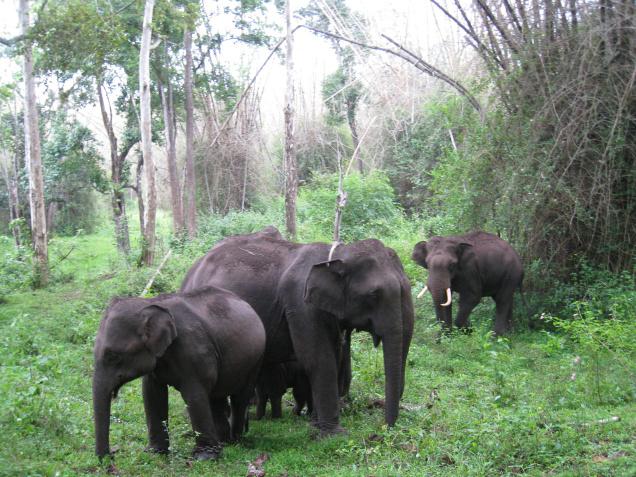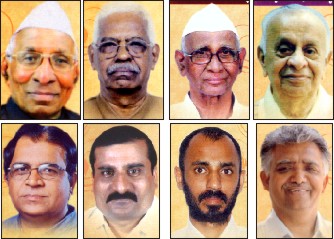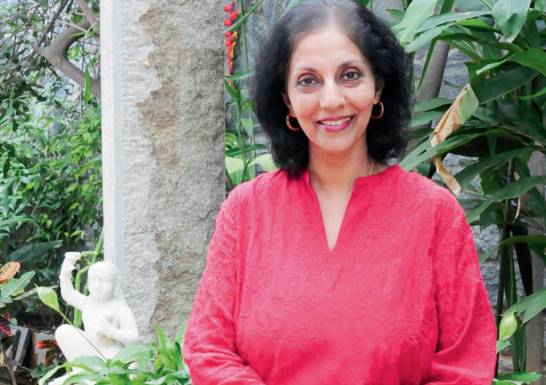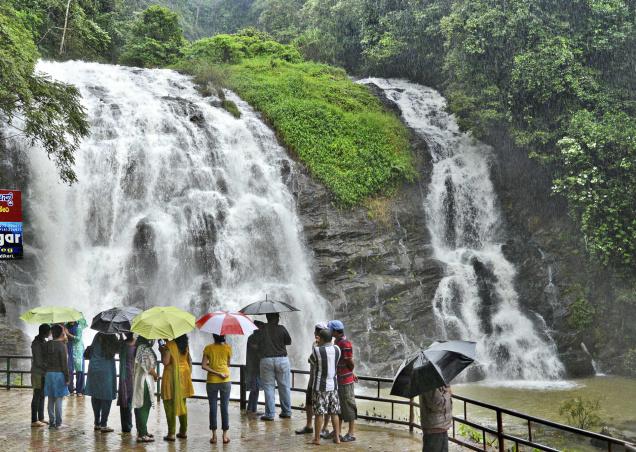
Tusker Country Watch elephants play in Dubare / Photo: Vijaya Pratap / The Hindu
We visit Dubare where elephants are trained and fall in love with them
Every time I visit Coorg, I fall in love with it all over again. Misty hills, tall areca palms, silver oak with pepper wines twisting around them, coffee plants growing in their cover, bright red hibiscus dangling from shrubs, emerald green banana plantations, one can’t help but fall hopelessly in love.
Close to Madikeri is Dubare Elephant Camp, a Jungle Lodges Resort perched on the edge of the forest. Where the woods end, the river Kaveri takes over. Huge trees on the banks, with the branches dramatically drooping over the water, make a picturesque setting. I reach camp and check into a cottage overlooking the river. Just below my balcony, I can see a myriad ripples merging into each other almost at my feet, while a symphony of cicadas, crickets, and bird calls alternates with delightful interludes of silence.
Gentle giants
I wait impatiently for daybreak and the safari. A smiling waiter bearing tea and a promise of cheerful, clear weather knocks on my door at dawn. Deep in the jungle, we find a group of elephants with two calves grazing. We stop and the driver switches off the engine. I click pictures to my heart’s content till suddenly, a huge tusker makes his majestic appearance, and with a loud trumpet suddenly comes really close, right in front of the jeep. I start getting jittery, but Jaya Prakash, the resort manager, is pumping courage. “Just wait and watch, continue your shooting,” are his cool words. My hands are too shaky to stay steady. The tusker comes closer, gives a loud trumpet in protest. ‘Why are you intruding?’ he seems to say. We maintain a guilty silence. He shakes his head and trumpets some more, as if to say ‘Ok… this time you’re pardoned, but not again,’ and starts to move away, his wife and baby following obediently. It’s a lovely sight, watching them disappear into the woods.
Dubare Forest, famous for its biodiversity and elephants, is a moist deciduous reserve forest with bamboo everywhere, which has flowered this year. This means the elephants have to go further into the Western Ghats in search of food. It is fun having elephants for company during mealtimes, though one can’t hope to compete with them in eating.
As I sip coffee, just below, an elephant downs water by gallons. An elephant just yards away is eating for hours at the same spot. The noise of breaking branches goes on till evening. Elephants have to eat 250 kg of food and drink 200 litres of water everyday to survive. All their time is used in eating, 16 to 20 hours a day, and they get hardly four hours of sleep.
I discover how harmless, intelligent and loving these animals are. We are allowed to join the mahouts to scrub the elephants down, as they placidly lie in the water. All of them are very obedient, except Ganesha, the 18-month-old tusker known for his mischief. Ganesha and another young calf who I name Karthik play and frolic most adorably, like two naughty boys. They roll over, they lock trunks, they go under, surface again. Karthik is weak, not a match to the robust first-born Ganesha, whose tusks have already started to emerge. But they play amicably, Karthik trying to keep pace with Ganesha. The staff complains that Ganesha is teaching the other one mischief! No different from our kids! After the bath, it’s breakfast time. Freshly scrubbed and shining, all the elephants line up to be fed huge balls of ragi and horsegram.
Jainu Kurubas are traditional mahouts, and even small boys can ride and control the animal. The mahout places his feet on both the animal’s ears and presses, using it as clutch and brake. He touches sensitive points like the forehead and ears with a little baton or ankush to stop and control the beast. He uses small commands and code language. I find it very interesting to see how the huge animal obeys even a little boy mahout.
Up to mischief
Mayura, a young tusker, is considered the most eligible bachelor. One day, as I watch him grazing, he slowly enters the campus and suddenly starts to uproot all the freshly planted saplings. The staff tries to stop him but he refuses to take anyone’s commands. Then, the mahout rushes to the spot and admonishes him, and Mayura meekly obeys.
After four days, I bid goodbye to Dubare. When I visit next, Ganesha will be a responsible adult tusker, wooing girl elephants. Mayura may be middle-aged by then and lose his place to Ganesha or Karthik (although I think will always play second fiddle to Ganesha!).
As Sattar starts his motor boat to take us back to the other bank, I look across the river and see Ganesha going for a bath with Karthik tagging along. My eyes mist over… I never knew such a strong bond could grow in such a short time.
source: http://www.TheHindu.com / Home> Life & Style> Travel / by Vijaya Pratap / August 10th, 2012







